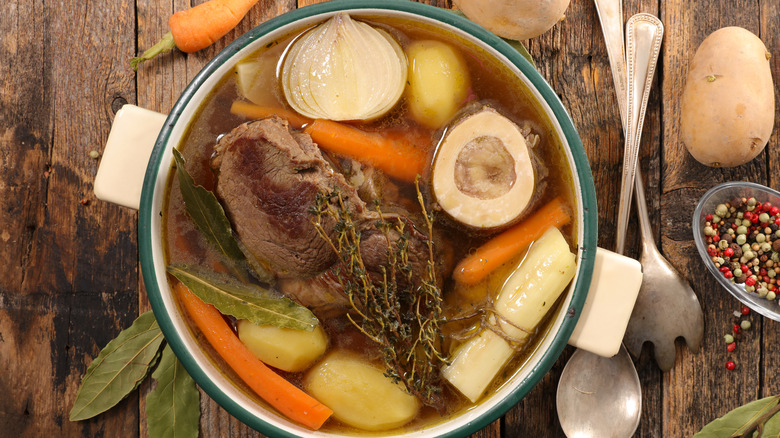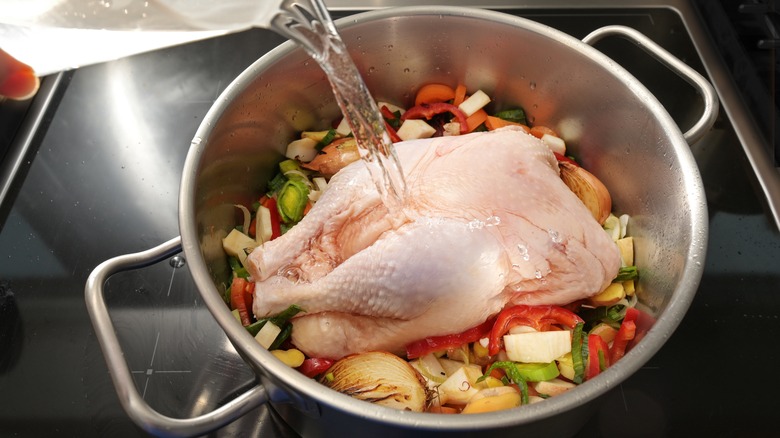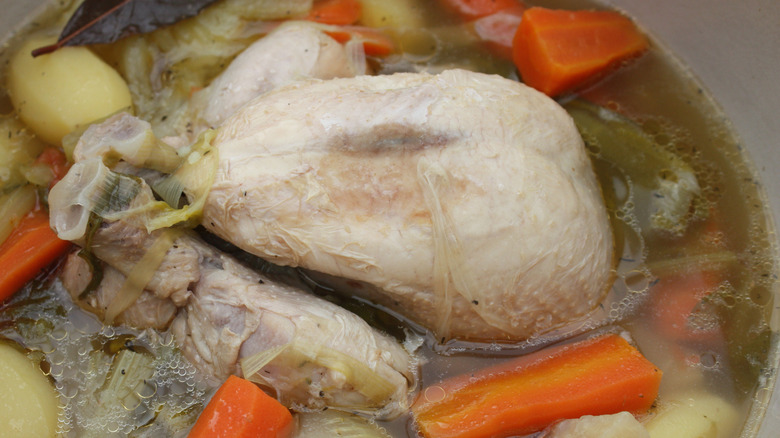When You're Boiling Meat, Less Water Is Better
Boiling is a popular way to prepare meats in certain cuisines; dishes from French Pot-au-Feu to Nigerian boiled beef all involve putting meats into a simmering pot of water and letting them cook. Some chefs balk at boiling as a preparation method for meat, because if done improperly, it can leach out flavor and cause the meat's fibers to seize up and become tough. However, when done properly, boiled meats can not only be tender, but juicy and flavorful.
Most boiled meat recipes are a misnomer, though: You're not really boiling your food at a rolling high heat, but rather cooking it on a medium heat, allowing it to simmer over time much like a soup or a stew. And when it comes to water, less is more. As the pot simmers, the meat will release juices and rendered-out fat, adding volume and flavor to the liquid in the pot and ensuring your food doesn't burn.
Season your boiling liquid for best results
As with any cooking method where the ingredients will be simmered in liquid, flavoring that liquid will always yield the best, most delicious results. Much like you would when preparing to make a stock, put plenty of aromatics into the water with your meat to ensure all that flavor will be soaked into the final product. Onion, dried or fresh herbs such as parsley or oregano, stock or bouillon, bay leaves, and of course, plenty of salt and pepper to taste should go into that pot along with your meat.
You can also add garlic, shallots, various other types of vegetables like celery or carrot, sauces such as Worcestershire or soy sauce — the list goes on. Depending on what you plan on using your meat for after boiling, you can organize your flavor profile accordingly to ensure the food is infused with a complementary flavor.
The best cuts of meat for boiling
While you can certainly cook any cut of meat using this method, some meats will lend themselves better to a long simmer than others. Larger, tougher cuts of beef like shoulder, brisket, or shins all work well in a boil, as the longer the meat cooks, the more tender it will get over time. This is partly because tougher meats tend to have more collagen in them, which dissolves during a longer cooking process, not only rendering the muscle fibers supple but also adding a gelatinous texture to the cooking liquid (which you can then use in your intended recipe, if needed).
Pork shoulder will also work well; chicken can be boiled, but will do best with the bone still in and in larger cuts (you can even boil a whole chicken to make stock, then reserve the meat to use in soups, stews, and salads later). However, boneless chicken breasts can still be boiled if done so carefully and gently. Simply adjust cook times so the meat doesn't end up overcooked and dry.


